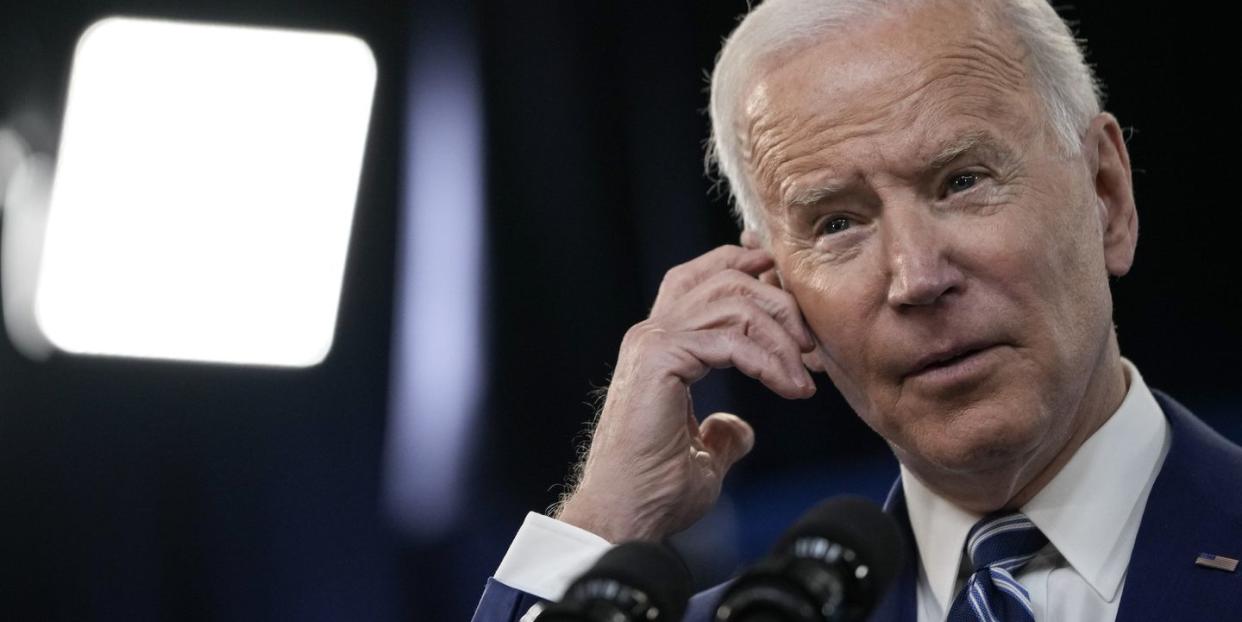Biden Beware: The Great Bipartisan Compromise on Infrastructure Might Be a Trap

"It’s not just building bridges when you talk about infrastructure," Eileen Appelbaum, an economist at the Center for Economic and Policy Research, told me during the presidential transition. "We have seen the large numbers of women who have dropped out of the labor force because there is no adequate child care, because the public schools are closed, because there's no adequate elder care in this country." She called this "care infrastructure," a companion to the more traditional infrastructure of roads and bridges and clean energy investments, and this concept will be vying for a place in the infrastructure bill the Biden administration plans to roll out over the coming weeks and months. The premise is simple yet revolutionary in an America that for the last 40 years has rejected, on a bipartisan basis, the idea that government has a major role in shaping the economy: the federal government should intervene to provide its citizens with a platform to succeed. It's an investment in your people.
Already, though, it seems the care infrastructure proposals in Biden's plans are on shaky ground. Thanks to a great Washington Post report from Jeff Stein, we learn there's a lot of pressure already for the Biden folks to drop their care proposals and just push the more traditional physical infrastructure in the bill.
Over the past two months, leading business groups privately told the administration that the infrastructure package should be focused primarily on physical capital projects — such as roads and bridges — rather than on the caregiving priorities, such as child care, three people familiar with the internal conversations said. Lobbyists urged the White House to jettison the care economy investments, which also would reduce the amount of tax revenue necessary to fund the package.
Centrist Senate Democrats also are more interested in big investments in roads and bridges than in the care-economy investments, which some viewed as reflective of a liberal wish list. That is in part because Republicans are more likely to support an infrastructure package, and many moderate Democrats such as Sen. Joe Manchin III (D-W.Va.) have said they want to return to bipartisan policymaking.
Look, a $4 trillion spending proposal backed by $3 trillion in tax hikes is no joke. It's going to be highly difficult to pass. But Democrats need to get a handle early on whether they are going to go out and court Republican votes on this thing. Because if Senate Republicans voted unanimously against the American Rescue Plan, can you realistically expect to get 10 votes on a bigger proposal? They might claim their opposition to the ARP was borne of the notion they felt cut out of the drafting process on the rescue bill, but it's hard not to also think back to the halcyon days of 2009 and envision a further program of relentless obstruction. Back in those days, the Affordable Care Act and the stimulus bill were not all they could have been—the stimulus in particular was probably half the size, at least, that it needed to be, leading to a slow recovery—and part of it was down to the siren song of Bipartisanship that rarely materialized when it came time to vote on something. Is the Senate Republican caucus, still led by Mitch McConnell, suddenly interested in the public welfare while a Democrat sits in the White House? The signs are not good.
This might also be more Good Talk from the Manchins of the world. In the end, the West Virginia senator played the relief-bill politics fairly deftly, even if he pissed everyone off by delaying the bill's passage with last-minute demands. In the end, the demands were minor, maintaining the legislation's ambition while giving him the chance to demonstrate capital-I Independence from Democratic leadership—a major goal for a Democrat in deep-red West Virginia. If this desire for bipartisanship is real, though, Manchin—who expressly favors infrastructure spending and raising taxes on the rich to pay for it—and anyone else in that camp may have to grapple with the idea that there is no major spending bill Republicans will actually vote for when the time for talking is done. If that's the case, why not use budget reconciliation to pass a better bill with a simple majority? Or better yet, why not shitcan the filibuster? If you started passing bills, you might find Republicans coming to the table to get some of their own priorities included. Or we can do the same song and dance as ever, pretending the 'buster creates bipartisanship, while vital voting-rights and election reforms fall by the wayside.

Join Esquire Select
You Might Also Like
